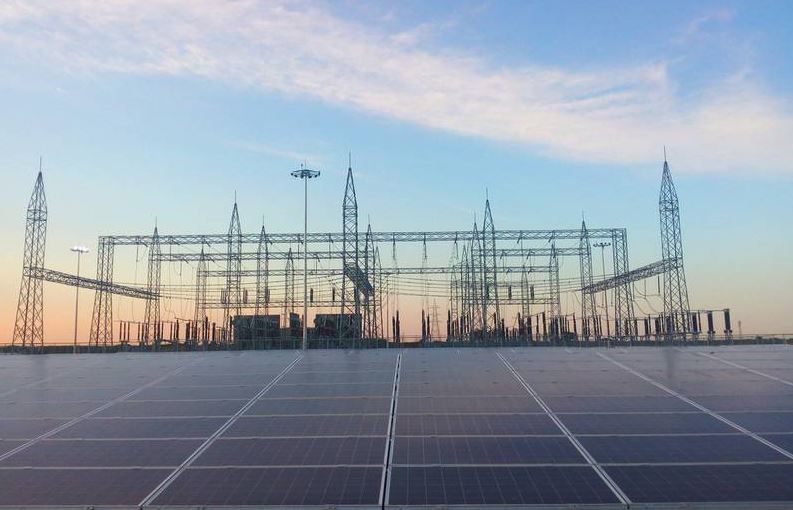President Aleksandr G. Lukashenko broke into a sweat after the Russian president suggested new elections.

MOSCOW — Besieged by protesters at home, the embattled strongman leader of Belarus, Aleksandr G. Lukashenko, traveled to Russia on Monday seeking help from President Vladimir V. Putin of Russia.
At the start of talks in the Black Sea resort town of Sochi, Mr. Lukashenko dropped the swaggering bravado he displays inside Belarus and posed instead as a grateful supplicant, describing Russia as his country’s “older brother” and thanking Mr. Putin and “all Russians” for helping him out.
As Mr. Putin made a statement opening four hours of talks, describing Belarus as “our closest ally,” Mr. Lukashenko wrote down the Russian leader’s words in a notebook balanced on his knees, resembling more an assiduous pupil or obedient junior official than the president of an independent state.
His display of deference highlighted how, facing the gravest crisis of his 26-year rule in the East European nation, he now depends more on Russia than on his own people for survival.
Mr. Putin opened the meeting, the first between the two authoritarian leaders of the neighboring Slavic states since the crisis in Belarus began, by congratulating Mr. Lukashenko on his landslide victory in a disputed Aug. 9 election. He also offered a $1.5 billion loan.
But the Russian president moved on quickly from gestures of support to endorse the idea of Belarus changing its Constitution to open the way for new elections.
Stating that “we would like Belarusians to sort this situation out on their own,” he also urged dialogue — something that Mr. Lukashenko has repeatedly ruled out with his opponents, whom he has scorned as “rats” and “tricksters” manipulated by the West.
Mr. Lukashenko, clearly uncomfortable, mopped his brow with a handkerchief when Mr. Putin finished talking.
The Belarusian leader has in recent weeks also raised the possibility of revising the Constitution. But few believe new elections are a serious possibility any time soon, not least because he declared in August that “until you kill me, there will not be any more elections.”
Mr. Putin, said Andrei Kortunov, the director general of the Russian International Affairs Council, “has never trusted or liked Lukashenko” and would be happy to see him eased out slowly, but not under pressure from the street. Allowing protesters to prevail, Mr. Kortunov said, would “be a serious existential challenge for Russia: ‘How can we justify our own system if our next door neighbor can do better?’”
But propping up Mr. Lukashenko indefinitely, he said, “also has big risks for Russia,” as that would alienate its neighbor’s generally pro-Russia population. Mr. Lukashenko, he said, “is finished as a legitimate leader who enjoys the support if not of a majority but of a large part of the population.” All the same, he added: “It is still too early to write him off.”
Mr. Lukashenko’s main rival in the August election, Svetlana Tikhanovskaya, who was forced to flee Belarus after she contested the result, warned in a statement on Monday that any agreement reached in Sochi “will have no legal force” because Mr. Lukashenko was no longer the country’s legitimate leader.
Addressing President Putin, she added: “I am very sorry that you decided to have a dialogue with the usurper, and not with the Belarusian people.”
Eager to show that he still has a grip on his country ahead of his talks in Russia, Mr. Lukashenko on Sunday deployed his sprawling and so far loyal security apparatus to try to prevent another day of huge protests. Tens of thousands of people still took to the street to clamor for his resignation.
The Interior Ministry said on Monday that 774 people had been detained during Sunday’s nationwide rallies, more than 500 of them in Minsk. It was the most arrests on a single day since early in the protests when riot police officers tried, without success, to keep people off the street with a frenzy of violence and mass arrests.
Mr. Putin has long been openly impatient with Mr. Lukashenko, a leader he is said to view as erratic and unreliable, and who has sought to keep Moscow at arm’s length to preserve Belarus’ sovereignty and also his own unbridled powers. But, wary of seeing a fellow strongman toppled by protests, Mr. Putin announced late last month that he had formed a “reserve force” of Russian security officers ready to intervene in Belarus if the “situation gets out of control.”
The Kremlin has not yet deployed the force, but Russia has taken an increasingly active role in Belarus, sending in advisers to help Mr. Lukashenko and Russian journalists to fill jobs in state media left vacant by the resignation of local staffers who have sided with the protests. Russia, Mr. Putin said in August, “is certainly not indifferent to what is happening there.”
Mr. Putin made clear to Mr. Lukashenko on Monday that he expected progress toward the formation of a so-called Union State, a largely stillborn project that was agreed upon in the late 1990s but which Mr. Lukashenko has resisted implementing out of fear that he could end up being reduced to little more than a regional governor under Kremlin control.
In a blunt reminder of Belarus’ subservience to Russia in the past, and perhaps a warning of things to come, Moscow’s ambassador in Minsk last week presented Mr. Lukashenko with a leather-bound book containing historical maps showing Belarus when it was part of the Russian empire.
In his own remarks at the start of talks with Mr. Putin in Sochi, Mr. Lukashenko repeated what has become his favorite pitch for Russian support: His survival as leader is the only way to protect Belarus and also Russia from the machinations of the West. He claimed that NATO has been massing troops on his country’s border, something that the American-led military alliance has strongly denied.
At the end of the talks, the Kremlin’s spokesman, Dmitri Peskov, declined to say whether the two presidents had discussed the timing of a possible new election. For the moment, Mr. Peskov said, Russia considers Mr. Lukashenko “the legitimate president of Belarus,” and “loves” all Belarusians, including protesters, as brothers.



